2019: read all about it
There’s plenty of good reading for your holiday time but there’s a cloud on the horizon for Australian literature.
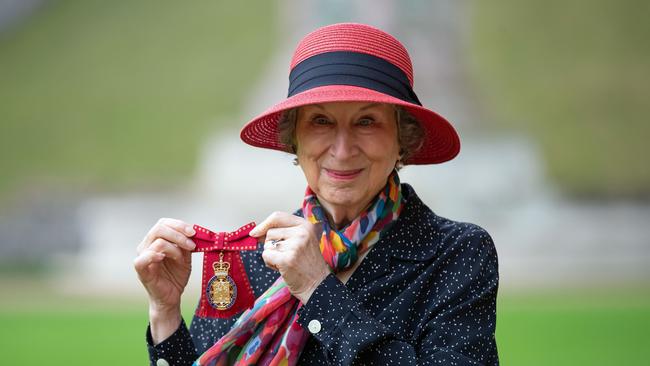
This year’s selection of must-read titles and ideal Christmas gifts begins with a public service announcement. Although the quality of books published locally remains extraordinarily high, there is smoke haze on the horizon – Australian literature is at watch-and-act level.
Some numbers and news to support this gloomy supposition. This past year, the Australia Council – the most significant funding base for the support of writing and publishing in this country – reported that literature’s share of $187m in arts funding was just over $5m, or 2.7 per cent. That slice of the pie is so small it threatens to be overtaken by the sliver marked “miscellaneous”.
As a result, in 2019, decades-old literary magazines such as Tasmania’s Island and Melbourne’s Overland were effectively defunded, leaving their futures uncertain.
Meanwhile, Sydney University, that gleaming sandstone pile with over $2.3bn in operating revenue, could not find the spare change to replace Robert Dixon, its outgoing chair of Australian Literature. Only one chair remains in the field – in Western Australia. And even in WA, commitment to Australian writing is faltering. Only weeks ago, it was announced that the 85-year-old University of Western Australia Press would be shuttered, effective almost immediately.
The cherry on top? Last week, the PM announced that the department responsible for the arts and communication would be folded into the department responsible for infrastructure.
If funding for Australian literature continues to be strangled, if its study is curtailed, if we choose not to protect a level playing field for local publishers and keep failing to acknowledge the intrinsic worth of local stories by allowing our writers to get by on the estimated average $12,900 a year they earn by the pen, then we are headed back to the time when this country – which prides itself on being a punch-above-its-weight, mid-level power, as materially rich as it has ever been – imported its stories from elsewhere. This will mean subaltern status in soft culture terms. And a return to the culture of cringe.
All of which leads me to implore anyone who loves Australian writing to think hard when book-buying these holidays. Yes, I have included a selection of brilliant international titles – all of which deserve to be read over the summer, according to your interests and tastes – but my hope in raising this alarm is that you twin those books with something local.
So please: shop with independent brick-and-mortar bookshops. Look out for titles from smaller Australian presses. Gift a subscription to an Australian literary magazine. Immerse yourself in a novel or work of history or biography dealing with antipodean subject matter. If you value stories that reflect your life and that of your community, or which offer a reflection of the world you move through each day, this is the season to celebrate our nation’s literary culture.
AUSTRALIAN FICTION
Carrie Tiffany’s Exploded View is hardly standard stocking-stuffing material. Her darkling account of family violence in the suburban 70s is subtly imagined and brutally recounted. For all the grimness in Tiffany’s story of an adolescent girl’s domestic imprisonment, however, hers remains a narrative shot through with poetry and hope.
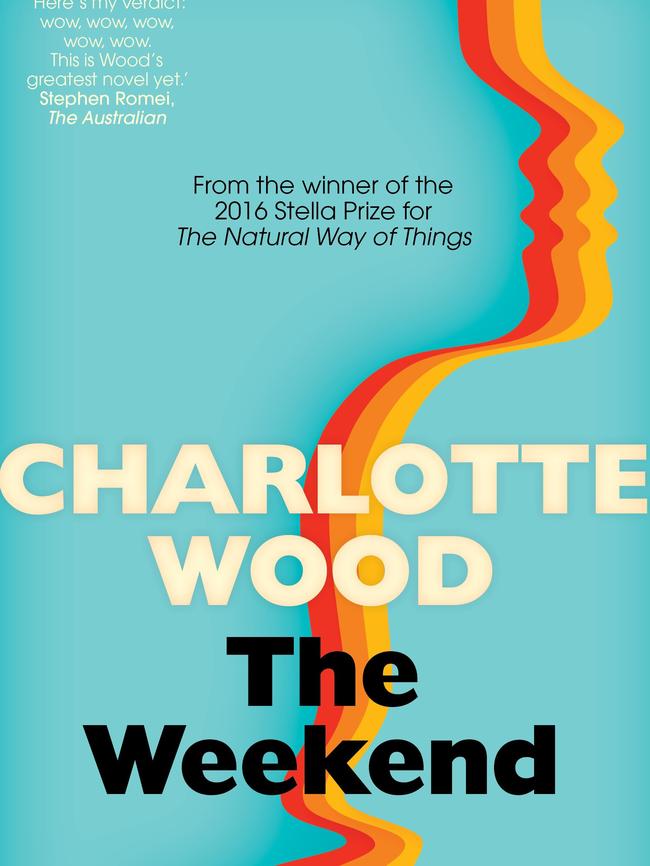
More sanguine but just as shrewd, poet-turned-novelist Philip Salom’s The Returns moves us to inner-city Melbourne in the near-present. The author’s account of two middle-aged misfits finding love seems quiet, at first. Only gradually does the warmth and wit, anger and damage of its vividly drawn protagonists shine through. Speaking of anger and damage, Charlotte Wood’s The Weekend shifts down a gear or two from its outraged pre-decessor, The Natural Way of Things. With her deft sense for the cultural moment, Wood investigates the relationship between three women in their seventies, clearing out the holiday house belonging to a fourth friend who has recently died. As a meditation on ageing, friendship, class and gender, The Weekend is tender, tough-minded and assured.
Christos Tsiolkas, meanwhile, has pushed the pedal to the floor in his latest, Damascus. Five years in the writing, the novel does nothing less than re-map the contours of the early Christian church, primarily via the life the Pharisee Saul, who we know as Saint Paul.
David Foster’s The Contemptuary is also concerned with the Christian faith, but in the Australian present. This quietly furious fiction about priestly abuse in regional NSW is an astonishing swan song for one of our most unheralded major writers.
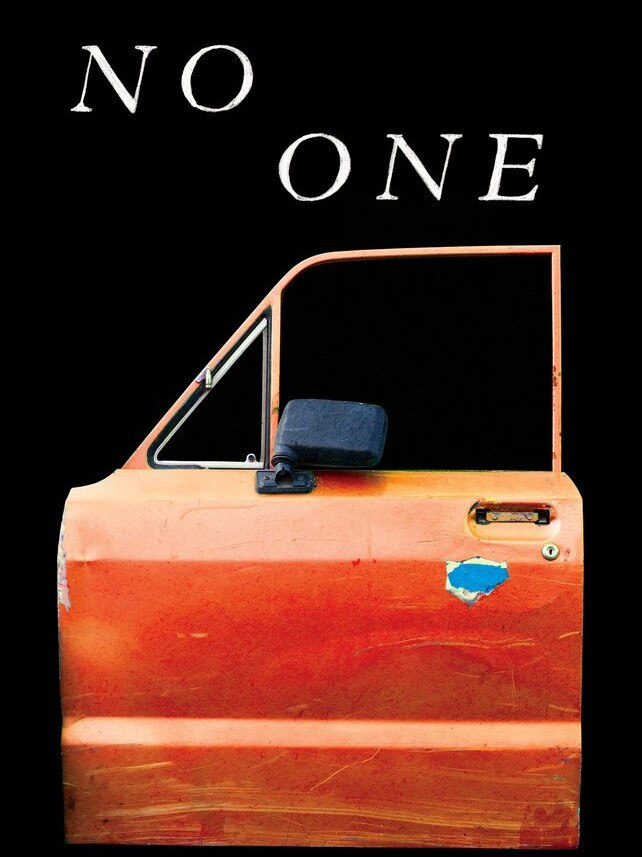
Most overlooked title of the year goes to essayist and novelist John Hughes’s novella, No One. A haunted consideration of indigenous presence in this country, a dream-song of migrant experience, a philosophical meditation on history, memory, trauma and time, it packs a universe into 150-odd pages.
I should conclude, as a newly minted Tasmanian, with two local favourites. Katherine Johnson’s Paris Savages explores, with compassion and tact, the experience of three Badtjala people from Fraser Island who travelled to Europe in the 1880s to unwittingly become part of a “human zoo”. Finally, Lenny Bartulin’s Fortune thrilled and saddened this reader in equal measure. Beginning with Napoleon’s entry in Berlin in 1811 and ending in a wooden shack in Tasmania’s high country after the Great War, Bartulin’s novel manages to hit the sweet spot between high modernist ambition and boy’s own adventure.
INTERNATIONAL FICTION
Ignore the forbidding aspects of Lucy Ellmann’s Ducks, Newburyport – the fact that it is a thousand-odd pages long, consists of a single, occasionally interrupted sentence, and is written in a stream-of-consciousness style – and relish the wit, intelligence and love that infuse every line.
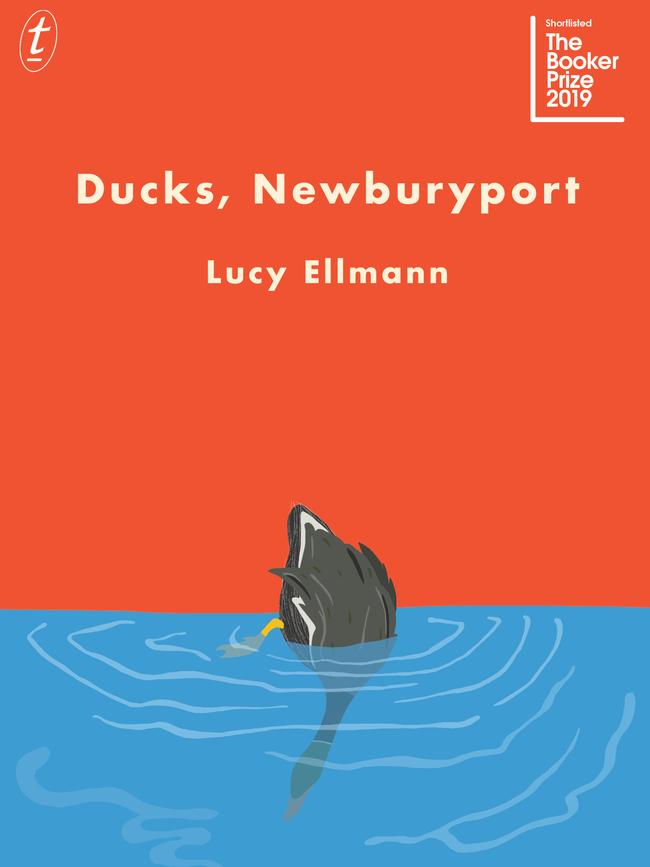
It is a novel of easy virtuosity, written from inside the mind of a suburban everywoman, that will break your heart and reorder your mental hard drive.
Colson Whitehead’s The Nickel Boys will break your heart, period. In a voice of calmly ironic realism, the African-American author narrates the experience of a black teen wrongly incarcerated in a Jim Crow-era Florida boys home. Based on real events and unsparing in its depictions of institutionalised racism, abuse and murder, The Nickel Boys nonetheless resolves into a triumphant portrait of heroism.
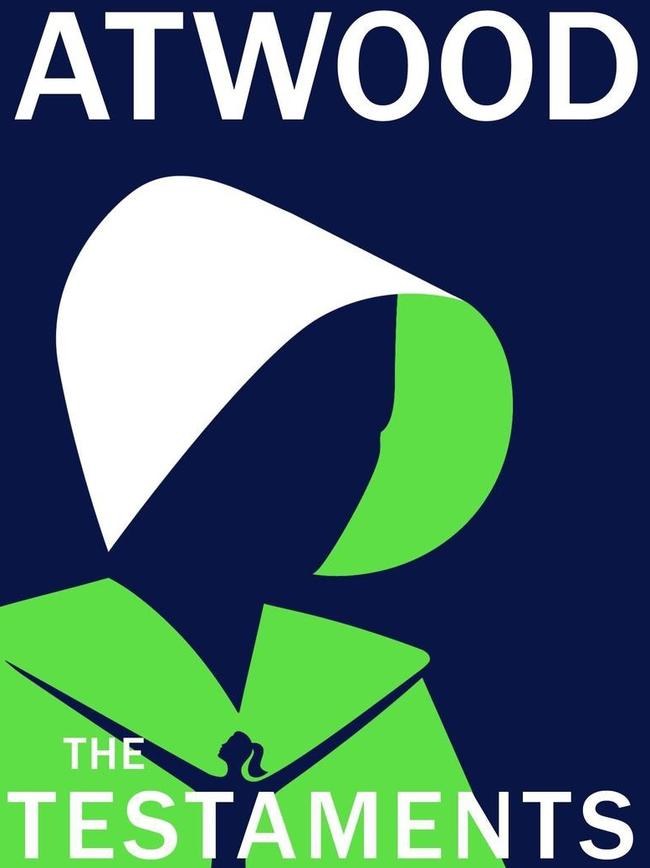
It is hard to imagine there are any interested readers left who haven’t already nabbed a copy of Margaret Atwood’s Booker Prize-winning sequel to The Handmaid’s Tale. But any waverers should simply dive in to The Testaments. The story of Gilead’s slow implosion is often terrible in unfolding. As an anatomy of the flawed foundations beneath any authoritarian state, however, it is gripping and acute; this year’s most necessary read.
I’ve only just reviewed Madhuri Vijay’s novel for these pages but the Indian-American author’s The Far Field has immediately leapt to the head of the queue. Vijay’s narrative about a privileged young woman from Bangalore travelling to rural Kashmir in search of the one man who ever got inside her dead mother’s head and heart is a tough-minded, acute depiction of grief and destructive political innocence.
Edna O’Brien has for 60 years now been a writer of unassailable courage – whether exploring her own life or those of others. Following on from her riveting account of war crimes in the Balkans, 2015’s The Little Red Chairs, Girl takes us inside the experience of the young women abducted from their Nigerian boarding school by soldiers of Boko Haram back in 2014.
Is there any modern author who has managed to maintain both output and quality for as long as John Le Carre? His new fiction, Agent Running in the Field, unfolds like a superior thriller but ends up a scathing editorial on Britain’s auto-immolation over Brexit.
If you, like me, came to Olive Kitteredge via the HBO drama adapted from the eponymously titled novel (or interconnected short story collection) by Elizabeth Strout, then you will have missed the pleasure that comes from meeting the sharp, self-scarifying yet magnetically fascinating character on the page. Here is another chance. Olive, Again revisits Olive over the next decade of her life. It explores her second marriage, shifting relationship with her son, and a fresh cast of characters based in Kitteredge’s seaside town in Maine.
Taffy Brodesser-Akner’s novel Fleishman is in Trouble has deserved its rave reviews. A story of divorce in which a wife mysteriously absconds from her husband and children, the novel examines her motivations while holding her inner life at one remove. Fleishman proceeds at an anxious dash, skating over darker waters than the novel’s blithe title and tone would suggest.
The standout UK novel of this year springs from the weirdly equipped imagination of Max Porter. A fable full of wordplay and weird typography, Lanny is set in a Home Counties village where a charmingly fey boy talks to trees, digs dens and attracts the attention of an ancient spirit of place named Dead Papa Toothwort. I know, it sounds very strange – a Morris dance of a novel. Yet, miraculously, it comes off.
FICTION IN TRANSLATION
I cannot say enough good things about Vasily Grossman’s Stalingrad, the prequel novel to his masterpiece, Life and Fate. Grossman, a journalist hero of the war, though also a Jew labouring to write this sprawling narrative under growing, state-sponsored anti-Semitism, managed the impossible in these pages: to write an obediently Soviet Realist account of Russia’s World War II that is also a fully fledged work of art.
Clive James, no casual dispenser of high praise, reckoned Etgar Keret to be one of the most important writers at work today. The Israeli short-story writer and graphic novelist has more than justified James’s faith with his new collection, Fly Already. His brief tales, filled with black wit and iron whimsy, are wise without ever fully relinquishing pure comedy.
From London-based Fitzcarraldo Editions comes a translation of Norwegian author Jon Fosse’s Septology I-II, the first of three volumes of a novel with not a full stop to be found among them. Fosse has been compared to Ibsen and Beckett in his native Norway, and there is a frigid brilliance to his account of two old painters living near one another on the country’s southwest coast.
Equivalent efforts in translation are also happening locally. Giramondo Press’s estimable Southern Latitudes series continues this year with a second novella by Argentinian writer Mariana Dimopulos, Imminence (translated by Alice Whitmore). Consisting of a series of vignettes emerging from the fraught mind of a mother who is failing to discover some maternal bond with her newborn, Imminence feels like a work dictated direct from the chemical clash of a million neurons.
Earlier this year, Sydney University Press published a translation of what is probably the first Chinese novel written and published in the West. That would be The Poison of Polygamy, by Wong Shee Ping – first serialised in an Australian Chinese-language newspaper in 1909-1910 and here published in a bilingual edition with a translation by Ely Finch. A tale of opium addiction, lost love and Chinese experience on the Australian goldfields, it will oblige readers to reconsider our literary inheritance.
NATURE WRITING
My book of the year in any category goes to Robert Macfarlane’s Underland. It is an account by the English nature writer of the world beneath our feet – prehistoric cave art in the frozen north and undersea mines off the English coast, urban catacombs beneath Paris and subterranean river systems in southern Europe, forests’ fungal networks and medieval interment chambers.
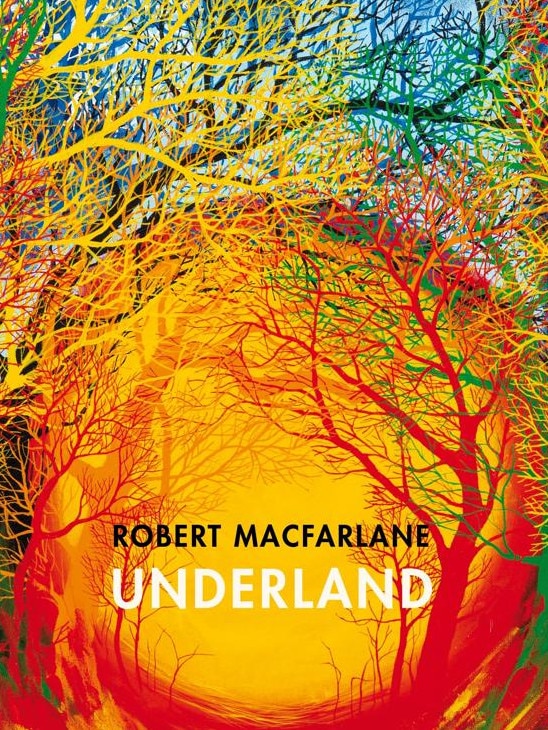
What Macfarlane reports on here is nothing less than a deep past that speaks – pointedly, eloquently – to our uncertain human future.
In any other year, Barry Lopez’s Horizon would have got the best book gong, so lucid and wise is the American writer of place.
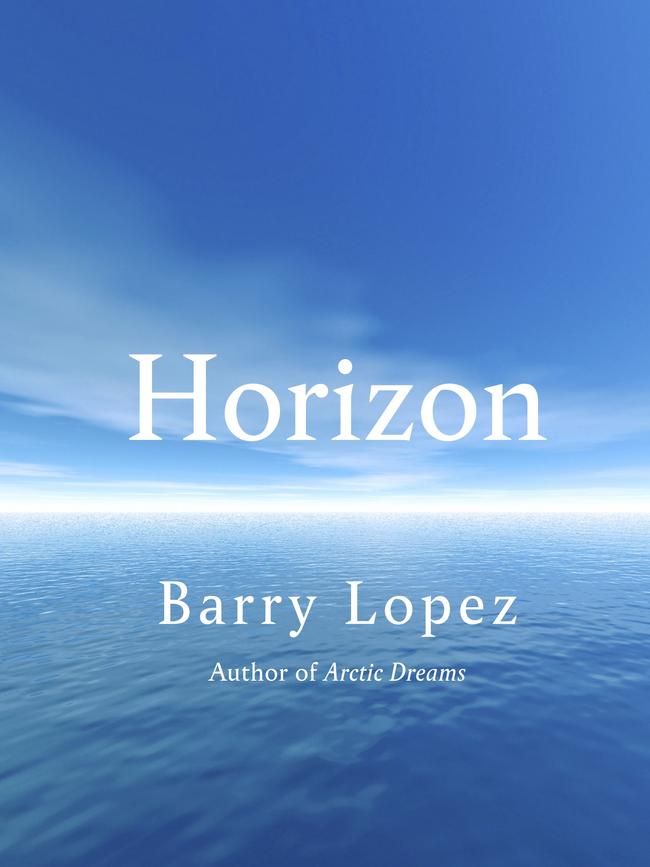
This volume is the capstone to a career spent travelling the world, watching and gleaning wisdom, and gathered in essay collections such as About this Life and Arctic Dreams. Horizon, which explores everything from Cook’s voyages to Navajo ritual, aches with a sense of foreboding for our shared biological future.
Meanwhile, back at home, Vicki Hastrich’s Night Fishing is a remarkable memoir in which the author subject steps in and out of her skin – Charlotte Wood calls it “a natural history of the self” – to explore the territory she has made her own over the years: Brisbane Waters, north of Sydney, but also to marry place to broader questions of art and culture.
HISTORY
Birds of the Ancient World by Jeremy Mynott is an account of Europe’s origins, viewed through the lens of the Classical era’s avidity for the avian. A keen ornithologist and gifted translator from the Latin, Mynott shows how birds in the ancient world acted as moving weather reports, augurs of the future, beloved companions or necessary sustenance.
Caroline Moorehead’s A House in the Mountains is an account of partisan warfare in Italy during World War II that concentrates on women’s points of view. It explores the interconnected experiences of four female partisans who worked as couriers, delivering everything from weapons to personal letters to those fighting against German forces and those still loyal to Mussolini’s Salo Republic.
You Daughters of Freedom by Claire Wright is the second in a trilogy of works that reimagine Australian history from marginal perspectives. Wright’s interest this time is in the suffragette movement in Australia, particularly during the lead-up to Federation. She shows how significant these pioneering women were in bringing about the birth of modern, independent Australia. And she reveals, too, how their example spread throughout the world during the early decades of the 20th century.
ESSAYS
Expatriate Australian writer Shirley Hazzard has found her ideal reader in Michelle de Kretser. On Shirley Hazzard relishes the life and career of a mid-century woman of letters whose essays, stories and novels showcased intelligence, wounded idealism, droll satire and deep wisdom regarding the human heart. De Kretser – no slouch herself in the writing department – reads Hazzard with unfeigned admiration and critical acuity.
Luke Carman’s An Elegant Young Man was one of the strongest, strangest debuts in recent Australian literature. His follow-up collection, Intimate Antipathies, deepens our sense of an author of talent who nonetheless reserves the right to not belong to any club that would have him as a member. Imagine F. Scott Fitzgerald’s The Crack-up, set in Sydney’s west, and you’ll be approximately in the vicinity of Carman’s approach.
If you ever wondered how Joan Didion would grapple with social media, or Susan Sontag with the #MeToo moment, Jia Tolentino, whose recent essays in The New Yorker have been as lucid and stylish as anything to appear in that magazine in recent years, offers some clues. Her collection, Trick Mirror: Reflections on Self Delusion, manages to combine highbrow cultural criticism with tech-savvy street smarts.
According to a number of Vandemonian writers, Peter Hay is the secret king of Tasmanian lit. First trained as a geographer, Hay combines scholarly rigour (he has written the standard textbook on environmental thought) with a poet’s sense of wonder. Forgotten Corners, his second volume of essays, hymns local ground, fondly recalls an ordinary childhood and youth in the state’s northwest, travels to Canada’s northern frontier and indulges in some trenchant political critique.
BIOGRAPHY & MEMOIR
Adam Nicolson’s The Making of Poetry travels in the footsteps of those two Romantic-era revolutionaries and poets, Samuel Taylor Coleridge and William Wordsworth, when, over the course of 1797 and 1798, they made Somerset’s Quantock Hills a theatre for mind and imagination. What’s new here is the scattering of artist Tom Hammick’s glorious woodcuts and paintings throughout the text – that, and a welcome focus on the quiet yet equally talented third party in their epic walking tours, Wordsworth’s sister, Dorothy.
Other People’s Houses is the second volume of memoir by that doyen of Australian publishing, Hilary McPhee. Tracing time spent in the Middle East and Britain in the wake of a failed marriage, McPhee writes with clarity and feeling about loneliness, creativity, friendship and middle age.
The 18th-century philosophe Denis Diderot is perhaps less well known than his literary colleagues and intellectual rivals, Voltaire and Rousseau, yet he remains one of the giants of his age: the man who brought the first encyclopaedia into existence and whose writings helped instigate the modern world. Diderot and the Art of Thinking Clearly, by Andrew S Curran, is a thematic biography that aims to show, using fresh sources and vast troves of unpublished writings, that Diderot was even more extraordinary than we knew – a self-doubting genius whose thought anticipated Freud and Darwin, as well as a radical atheist whose ideas portended our secular age.
POLITICS, PHILOSOPHY, ECONOMICS
Guest House for Young Widows, by Iranian-American journalist Azadeh Moaveni, is built from profiles of women who left their homes in Europe and elsewhere to marry ISIS fighters. Moaveni’s clear-eyed exploration dispels the myth of ISIS brides as radicalised murderers in burqas. But she doesn’t seek to exonerate them. She asks instead that we see their decisions in the context of the home life they fled, whether because of poverty, youth or domestic abuse.
Justin Eric Halldor Smith is one of the most learned philosophers and historians of ideas at work today. American-born but Paris-based, the Leibniz scholar has tackled contemporary material this time around. Irrationality: A History of the Dark Side of Reason is a work for our (Trumpian) times, which seeks to explain how the post-war liberal consensus has been corroded by social media and creeping authoritarianism. Smith believes such irrationality has been the dark twin of our rationalist efforts from the start.
The third and final volume of Charles Moore’s authorised biography of Margaret Thatcher, Herself Alone, is the saddest. Here we encounter a woman whose personality and will were so forceful they eventually alienated even her most loyal colleagues, even as that same strength of purpose propelled her to global prominence. The last 25 years of her life are barely touched upon here – the reason being, the reader comes to suspect, because without power to wield she hardly existed. Moore is an insider, though not an uncritical one. And whether the story he tells strikes as a political triumph or a personal tragedy remains an open question. As the portrait of an inescapable figure of our times, however, this life is magisterial.
The Anxious Triumph, by British historian Donald Sassoon, investigates the fraught relationship between government and the economy, concentrating on the period from 1860 to 1914. Sassoon’s vast canvas is filled with fascinating detail and puts paid to the idea, beloved by neoliberals, that states should ideally wither away. Drawing on everyone from Adam Smith to today’s crypto-anarchists, the author persuasively argues that economics without some state intervention is a recipe for dystopia.
Geordie Williamson is The Australian’s chief literary critic.




To join the conversation, please log in. Don't have an account? Register
Join the conversation, you are commenting as Logout